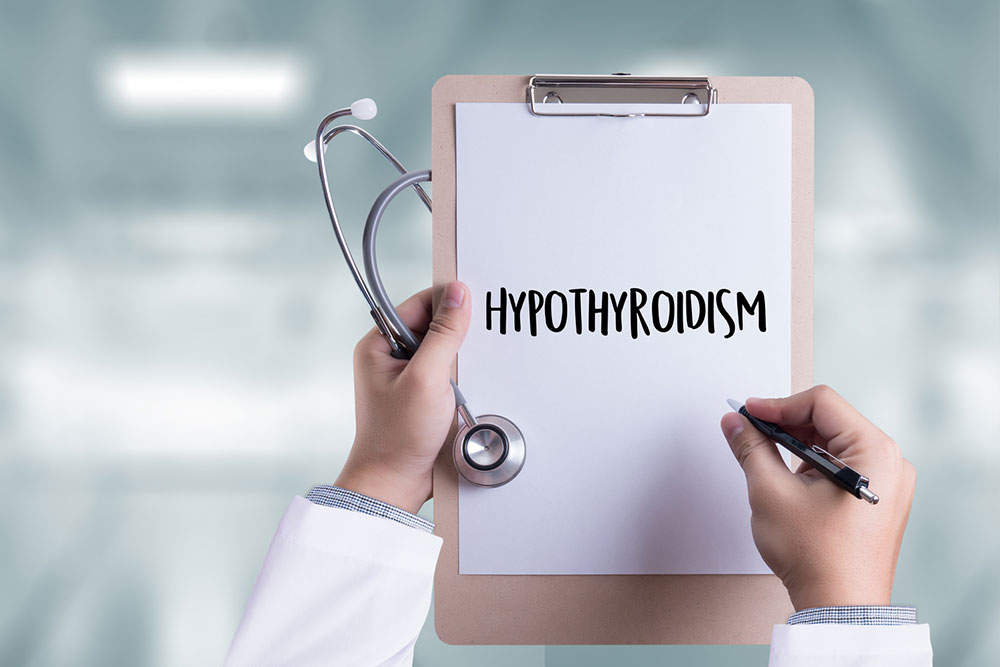Comprehensive Guide to Thyroid Disorders: Symptoms, Causes, and Treatment Options
This comprehensive guide explores thyroid disorders like hypothyroidism and hyperthyroidism, detailing their symptoms, causes, diagnosis, and treatment options. Understanding these conditions can help with early detection and effective management, improving overall health and quality of life.

The thyroid gland is a crucial component of the endocrine system, responsible for maintaining many aspects of our overall health through hormone production. Located at the front of the neck, just below the Adam’s apple, this butterfly-shaped gland regulates metabolic processes, influences energy levels, and supports growth and development. When the thyroid functions properly, it produces the right amount of hormones to keep the body's systems running smoothly. However, when its function is disrupted, it can lead to significant health issues, primarily hyperthyroidism and hypothyroidism, each with unique symptoms, causes, and implications.
The primary hormones secreted by the thyroid are thyroxine (T4) and triiodothyronine (T3). These hormones play a crucial role in controlling how the body uses energy, affecting every organ and cell. The synthesis of these hormones depends heavily on iodine, an essential mineral obtained through diet, predominantly from iodized salt, seafood, dairy products, and certain vegetables. The body's regulation of thyroid activity is a complex feedback loop involving the hypothalamus and pituitary gland in the brain. When blood levels of T4 and T3 drop, the hypothalamus releases thyrotropin-releasing hormone (TRH), signaling the pituitary to produce thyroid-stimulating hormone (TSH). Elevated TSH levels then stimulate the thyroid to produce more hormones. Conversely, high hormone levels inhibit further release via a negative feedback mechanism, maintaining hormonal balance. Disruptions in this delicate equilibrium can lead to various thyroid disorders, including hyperthyroidism and hypothyroidism.
Understanding Hypothyroidism
Hypothyroidism occurs when the thyroid gland fails to produce enough thyroid hormones to meet the body's needs. This deficiency causes the body's metabolic processes to slow down, leading to a range of symptoms. The condition is often caused by autoimmune diseases such as Hashimoto’s thyroiditis, where the immune system mistakenly attacks the thyroid tissue, impairing hormone production. Iodine deficiency is another cause, especially in regions where dietary intake is insufficient. Additionally, thyroiditis, surgical removal of the thyroid, or radiation therapy can contribute to hypothyroidism. Certain medications may also interfere with thyroid hormone synthesis.
Symptoms of hypothyroidism develop gradually and may include persistent fatigue, weight gain despite unchanged diet or activity levels, dry skin, hair thinning, constipation, cold intolerance, and swelling in the face. Patients might also experience depression, memory problems, muscle weakness, slow heart rate, and menstrual irregularities. Because these symptoms are often subtle and attributed to other conditions, diagnosis can sometimes be delayed. Blood tests measuring TSH, T4, and T3 levels are essential for confirming hypothyroidism. Elevated TSH levels coupled with low T4 are indicative of an underactive thyroid.
Understanding Hyperthyroidism
Hyperthyroidism is characterized by excessive production of thyroid hormones, which accelerates metabolic processes in the body. It can develop due to autoimmune conditions such as Graves’ disease, where the immune system stimulates the thyroid to overproduce hormones. Thyroiditis, or inflammation of the thyroid gland, can also cause transient hyperthyroidism. Excessive iodine intake and certain nodules or tumors within the thyroid may contribute as well.
The symptoms associated with hyperthyroidism are often more noticeable and can include rapid weight loss despite increased appetite, anxiety, irritability, tremors, excessive sweating, heat intolerance, and palpitations. Patients may also experience difficulty sleeping, muscle weakness, goiter (enlargement of the thyroid), and eye issues such as bulging eyes in Graves’ disease. Due to the heightened metabolic rate, individuals may also suffer from diarrhea, menstrual irregularities, and eye sensitivity.
Early detection is vital because if left untreated, hyperthyroidism can lead to complications such as heart rhythm disorders, osteoporosis, and in severe cases, thyrotoxic crisis, which is life-threatening. Blood tests revealing low TSH levels alongside high T4 and T3 confirm hyperthyroidism. Treatment options include medications such as antithyroid drugs, radioactive iodine therapy, and sometimes surgical removal of part or all of the thyroid gland to normalize hormone levels.
Aside from these common conditions, thyroid cancer also represents a significant health concern, especially among women under 55. Though less common than benign thyroid disorders, thyroid cancer can be aggressive and requires timely diagnosis. Types of thyroid cancer include papillary, follicular, medullary, and anaplastic carcinomas, each with varying prognosis and treatment approaches. Regular screenings and awareness of symptoms like a new lump in the neck, persistent sore throat, or voice changes are critical for early detection. Successful treatment often involves surgery, radioactive iodine therapy, and targeted drug therapies, depending on the cancer type and stage.
Overall, understanding the function and disorders of the thyroid gland is essential for maintaining health. If you experience symptoms associated with thyroid imbalance, consulting a healthcare provider for proper testing and diagnosis is crucial. Managing thyroid disorders effectively can prevent complications, improve quality of life, and support overall well-being.





